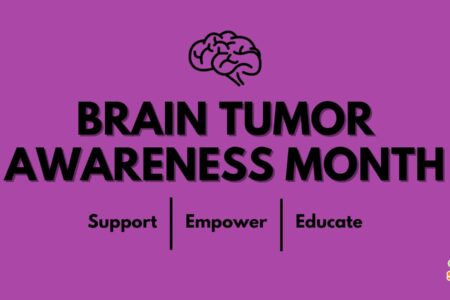
Share On Social!
In the Latino-majority and rural region of Paso Del Norte, which encompasses southern New  Mexico and El Paso, Texas, many families struggling to make ends meet and easy access to affordable healthy foods is lacking. A band of food justice activists were tired of watching the region’s youth grow up without a sense of connection to their land, bodies, and heritage. La Semilla Food Center was born out of this frustration, their mission being to build a healthy, self-reliant, fair, and sustainable food system in Paso Del Norte. La Semilla established its Youth Food Policy Council (YFPC) to build awareness around food issues and create healthier changes in communities. By the end of the first YFPC, 10 youth had been totally immersed in the food system, learning how polices big and small affect their health every day.
Mexico and El Paso, Texas, many families struggling to make ends meet and easy access to affordable healthy foods is lacking. A band of food justice activists were tired of watching the region’s youth grow up without a sense of connection to their land, bodies, and heritage. La Semilla Food Center was born out of this frustration, their mission being to build a healthy, self-reliant, fair, and sustainable food system in Paso Del Norte. La Semilla established its Youth Food Policy Council (YFPC) to build awareness around food issues and create healthier changes in communities. By the end of the first YFPC, 10 youth had been totally immersed in the food system, learning how polices big and small affect their health every day.
Emergence
Awareness: In the Paso Del Norte, which includes part of New Mexico and El Paso, Texas, which is more than 80 percent Hispanic, food access is a problem in many rural, isolated areas.
La Semilla Food Center officials, aware of this problem, established a Youth Food Policy Council (YFPC). In 2010, several youth designed and conducted a Community Food Assessment (CFA) to identify food access problems in the small towns of Anthony, Chaparral, and Vado, New Mexico. The CFA also aimed to identify potential solutions.
With the help of New Mexico State faculty, the youth surveyed community members, asking them to speak about healthy food affordability and availability, food served in public schools, growing their own food, transportation and locations of grocery stores, farmers’ markets, and asked for input on changes that could be made to make healthy produce more available and affordable in their communities. Youth met with folks at churches, a small store, and a fast-food restaurant, and yielded some interesting results.
Most survey participants believed that healthy, local food was available to them.
However, the youth did not see this in their daily lives. Many families had to travel far to get to grocery stores, and many of these stores didn’t even have produce grown in New Mexico.
Further, the idea of what was “healthy” to survey participants was unclear.
“There wasn’t an actual agreed-upon definition on what that [healthy] meant,” said YFPC coordinator Krysten Aguilar.
The youth began to ask some questions: Why do our grocery stores only sell pre-packaged foods? Why don’t we eat stuff grown near where we live?
Learn: YFPC members, invigorated by results of their survey, wanted to change the local food environment from the ground up and add healthier food options in schools and beyond.
But they weren’t sure how to start.
Rebecca Wiggins-Reinhard, one of the founders of La Semilla Food Center, taught the youth that policy change doesn’t have to be high-level, Washington, D.C.-based change.
“Our schools, our neighborhoods, and even our homes have policies. The youth realized that changing a policy can be as simple as changing the way something is done,” said Wiggins-Reinhard.
To get better foods in schools and beyond, Rebecca Wiggins-Reinhard said it is vital to understand where that better food will come from and how the food distribution system works. A lot happens to food from when it’s grown to when it’s eaten.
First, the youth learned about food production. They met Robert Leal, a local farmer, who taught them about monoculture (fields with the same kids of crops) and how permaculture (using land for a variety of different crops) helps create a diversity of plants and is a more efficient use of soil. With Leal, the youth planted herb spirals.
Next, the youth learned about processing and packaging at Mountain View Co-op, including the importance of correct labeling, like when to label an apple organic or not. The youth also toured the West Texas Food Bank and learned about food access, how food is distributed to folks who need it, and what kind of policies affect these decisions.
The youth then toured a large grocery store, taking note of how food was displayed and how that influenced customers. They learned about eating and preparing food by cooking-up their own “fruit salad.” Each youth was responsible for figuring out the nutritional content of the fruit or vegetable they chose and what body function it serves.
“They did the whole thing; they bought it, they cleaned it, they prepared it,” said Aguilar.
Finally, the youth learned about disposal of food and where food waste goes.
Frame Issue: The policies behind these processes were becoming apparent to the youth, Aguilar said.
They started synthesizing all they had learned into potential policy solutions to local food access and food justice issues in Paso Del Norte.
The youth are beginning to focus on changing school lunch policies, planting school gardens, and conducting a photo project that uses cameras and captions to document the region’s food environment.
Development
Education: The YFPC visited the Anthony City Council to present what they learned and discuss local food issues and potential solutions.
Before they met with council members, the youth researched the backgrounds and policy stances of each member. They learned that this is an important part of doing policy work, Aguilar says.
The meeting established a valuable connection between city leaders and the youth, who also got a better grasp of how local taxes work and how taxpayer monies fund things like road improvements.
Explore More:
Healthy Families & SchoolsBy The Numbers
142
Percent
Expected rise in Latino cancer cases in coming years



